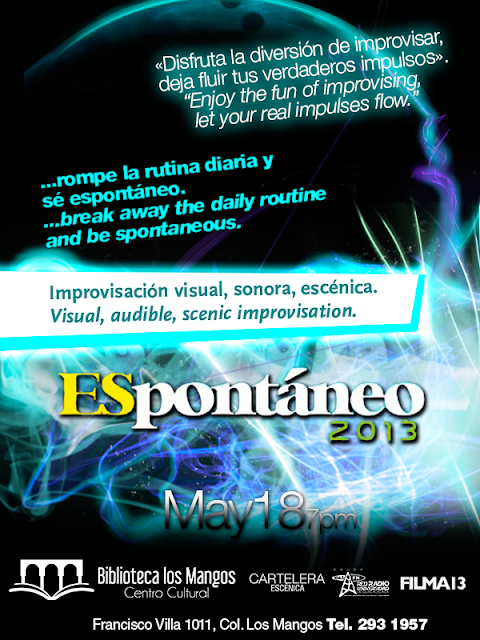Español
En este evento, tendrás la oportunidad de apreciar diferentes manifestaciones artísticas; artes visuales, artes escénicas, música y literatura.
Los artistas participantes iniciarán la fiesta explorando libremente cada uno de los espacios previamente recreados, cómo: "El árbol de los recuerdos", "La estructura del tiempo" en la explanada, "Las ventanas al interior", "Las rampas", "Los jardines mágicos", "El lobby", "El pasillo", etc.
Tendrás la oportunidad de jugar en cada uno de los espacios, en donde la idea es invitarte a romper con la armadura y decidas despojarte por un momento de prejuicios, de lo "aprendido" y hábitos cotidianos, dejando atrás todo lo que te limita para ser espontáneo.
No te lo pierdas, este Mayo 18 a las 7 p.m. en Biblioteca Los Mangos.
ENTRADA LIBRE
English
You will have the opportunity to appreciate different artistic manifestations: visual and scenic arts, music and literature.
The participant artists will start the party freely exploring the previously recreated spaces: "The memories tree", "The time structure" in the terrace, "The interior windows", "The ramps", "The magic gardens", "The lobby", "The hallway", etc.
You will have the opportunity to play in each space, where the idea is to invite you to break the armor and to strip off prejudices of what's "given" and daily habits, leaving behind everything that limits you from being spontaneous.
Don't miss it, this May 18th at 7 pm. at Los Mangos Library.
FREE ENTRANCE



